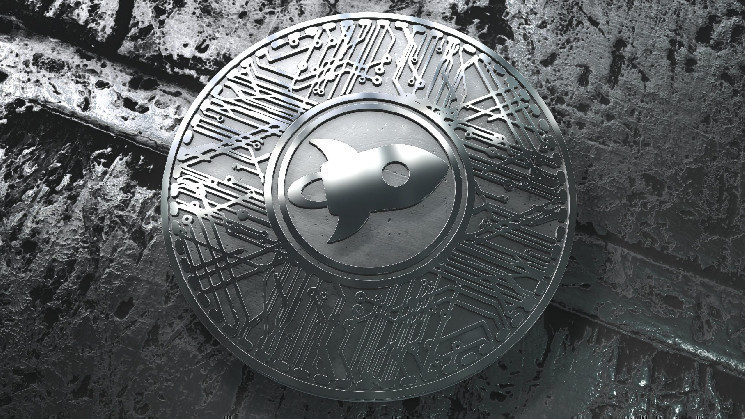- Stellar Lumens has introduced a project called Stellar Aid Assist to offset some of the challenges of disbursement of aid.
- IRC – International Rescue Committee has explained four key barriers that hinder the disbursement of aid to affected areas.
CNF recently reported on the impact of the Stellar Aid Assist that has been utilized by the United Nations High Commissioner for Refugees (UNHCR) to respond swiftly to a humanitarian need in Ukraine.
It is now reported that the Stellar network is partnering with the IRC – International Rescue Committee to respond to the growing challenges confronting the disbursement of aid to affected areas.
The @RESCUEorg is Resilient With Blockchain
More than 110 million people are displaced globally, facing crises from climate, COVID, and international conflicts. It’s time for reflection and action. @DMiliband talks barriers and solutions below (1/6) pic.twitter.com/D7sCwpFN1E
— Stellar (@StellarOrg) December 12, 2023
In an article titled “the Realities of Delivering Aid,” authored by David Miliband, the President and CEO of the International Rescue Committee, the gravity of the humanitarian crisis was highlighted. According to him, about 110 million people are displaced globally. Interestingly, organizations like the IRC that operate from the remote environment are confronted with barriers in delivering aid.
The first barrier he spoke about was the “fragmented aid sector.” According to him, there is always the need to address crises with short-term, fragmented solutions with outcomes and evidence not featured in the big enough part. This implies that a serious strategy is needed to break the cycle as stated in his post.
The process of breaking this cycle requires careful analysis of the problem, the available evidence, the context, client views, and other types of information to make a long-term change in the lives of those we serve. It requires a serious look at outcomes rather than outputs.
The team designed an interactive set of tools dubbed ” Outcomes and Evidence framework” to address this.
More Barriers Affecting Humanitarian Aid and Roles of Stellar Aid Assist
The Second barrier is mass insecurity. He believes that people residing in food-import-dependent and low-income countries are already facing the worst due to the Ripple effect of COVID-19 and ongoing wars. He pointed out that Somalia, for instance, imports 90 percent of its wheat from Russia and Ukraine.
The next barrier is the “insufficient funding for climate adaptation.” According to him, climate change is seriously affecting the vulnerable and intensifying social and gender inequalities. With this, he suggests that resources must be used to build programs to prepare communities to face the adverse effects of climate change.
Recommended for you
• Minting the Future: The Synergy of Rebel Satoshi, Dogecoin, and Shiba Inu• Dora Factory closes new strategic raise, announces new ecosystem partnerships• XRP Gains Ground Amid Dovish Fed Stance and Regulatory UncertaintyFinally, he mentioned the rise of impunity in conflict as another barrier. He stated that the more competitive and less coordinated international system makes it more difficult to resolve conflict. He mentioned that humanitarian organizations do not lack ideas on the actions to take.
That’s why the IRC was created to design, test, and scale life-saving interventions in communities affected by crises worldwide. From using technology to predict and respond to climate shocks, to delivering treatment out of reach for 80% of malnourished children, the IRC is driving and accelerating solutions to the world’s biggest challenges.
These challenges influenced the design of the Stellar Aid Assist which has been in operation for more than 10 months. Powered by the Stellar network, the project enables humanitarian organizations to send bulk stablecoins to qualified individuals and recipients in need, stressing the need for blockchain technology to be explored in this area.
With this, an aid organization would have to make 100,000 transactions to spend a dime in gas fees. This was confirmed by Tori Samples, a senior product manager at SDF who oversees Stellar Aid Assist.
